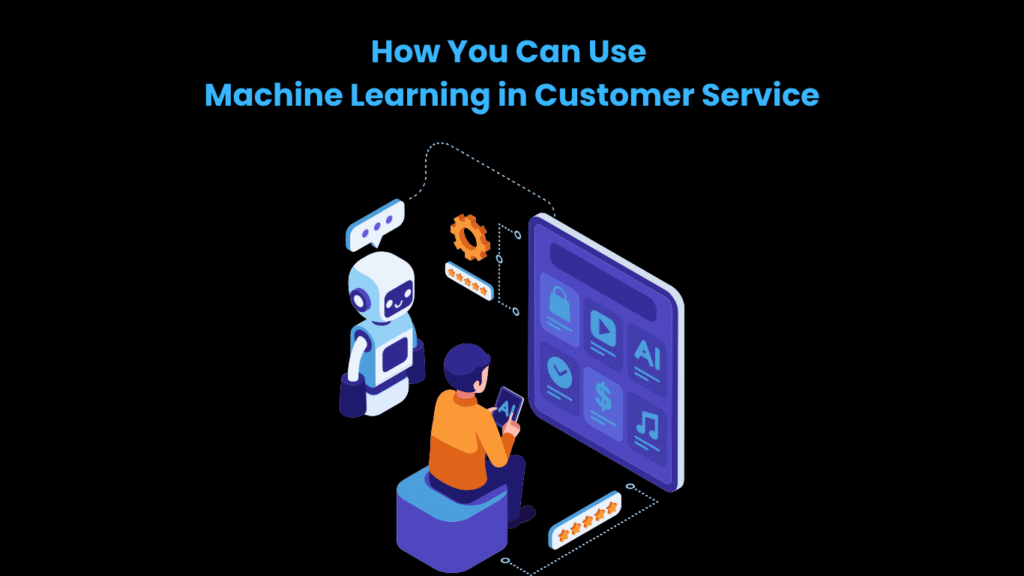Are you wondering about how artificial intelligence is changing the customer support industry? The answer is that we use chatbots to deal with simple questions. We use autoresponders to acknowledge emails. We also use AI to direct calls and handle service tickets.
However, that’s only scratching the surface. In this post, we look at how you can use machine learning for customer service.
What is Machine Learning?
This is where we feed a certain set of parameters into an algorithm that allows the machine to make inferences. So, instead of actually telling the computer what it should do, we allow it to learn on its own.
We allow for learning by feeding the machine various data sets. In a customer service setting, this could be a record of past customer interactions. The machine could then learn more about the types of questions clients ask and the way they phrase them.
It could learn how to answer these queries by reading the responses from consultants. Eventually, it would be able to apply this knowledge in real time while conversing with a client.
So, basically, this changes how support works. Instead of needing human consultants on call 24/7, we can augment our services with smart machines. There are, however, limitations, so the bots need to be able to escalate queries.
If you’re training a chatbot, you’ll need many examples for it to learn from. This means that collecting information about interactions is critical.
How We Can Use Machine Learning in Customer Service
Here are some of the most common applications. These are what we’re using already, but there’s no doubt that we’ll think of other ways to apply this tech in the future.
Automated Ticket Routing and Prioritization
This is incredibly useful because it ensures that the client reaches the right support option the first time. This can save them the frustration of being transferred from one department to another.
It also allows companies to prioritize certain types of requests. Say, for example, someone steals your bank card. You want to cancel it straight away, not wait for the “next available consultant.” Depending on the complexity of the system, the AI might even be able to cancel the card for you.
Real-Time Support
Do you have seemingly endless queries about opening hours, stock levels, and various other standard issues? If you train a chatbot properly, it can answer those questions 24/7.
The upside is that it’ll always give the right answer and never get bored. This makes life easier for your human consultants because they don’t hear the same boring questions over and over.
It can also streamline your call center operations because the bot deals with the questions without human intervention. Naturally, there will be times when it needs help, but a good escalation process makes this easy.
Efficient Helpdesk Integration
Machine learning also complements IT helpdesk support by automating repetitive tasks and improving response accuracy. When AI tools are integrated with helpdesk systems, they can categorize tickets, suggest solutions, and escalate complex issues to human agents more efficiently. This synergy ensures faster resolution times and a smoother overall customer experience.
Personalized Recommendations
Your customers may interact with your brand at any of hundreds of touch points. They might:
- Read an article on your website
- Download a whitepaper
- Check product descriptions
- Make a purchase
- Ask a question via live chat
You get the picture. That’s a wealth of data that you can use to create personalized recommendations. However, it exists across several databases, which makes collating it a challenge.
If only there was a tool that could scan through all these touchpoints in seconds. AI can do that. Whether you incorporate this functionality into your bot or keep it as a tool for consultants, it’s powerful.
You’ll be able to make highly relevant recommendations. These show the client that you know them well. They’re more likely to convert to sales as a result.
Sentiment Analysis
Would you like to know how clients really feel about your brand? As with the previous point, AI can analyze data from various sources. It can look for brand mentions on social media, forums, and other online sources to see what people are saying.
You can use this tool for more than just brand mentions. You can also identify trends and issues that are important to your clients. This allows you to address burning issues or create extremely relevant content.
Predictive Analytics
What do your customers really need? If you know them well, you have a rough idea about what they say they want. But is what they say really what they feel?
As an example of how powerful AI’s predictive analytics can be, we look at Target. They wanted to break into the very lucrative baby product market. So, they looked at ways to attract clients who might be pregnant or thinking about getting pregnant.
They created an algorithm that could identify this target audience based on their purchase history. They then sent targeted marketing to these people.
Apparently, it worked a little too well. A man complained to Target that they were sending inappropriate marketing to his teenage daughter. Unbeknownst to him, his daughter was pregnant. She just didn’t know how to tell her parents.
Clearly, Target should have considered the ethics here as well. They might have been more careful about the ages of those they were marketing to.
Read More: Why Are Social Media Trends the Future of Content Marketing?
Conclusion
Customer support today looks very different from ten years ago. In another ten years, we’ll no doubt see amazing changes again. However, machine learning offers you a viable way to remain flexible and relevant in this dynamic area




